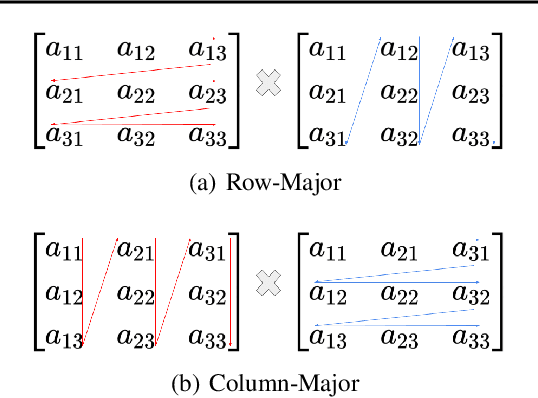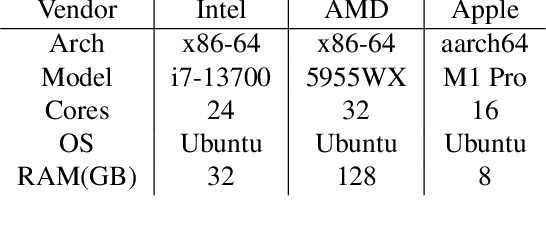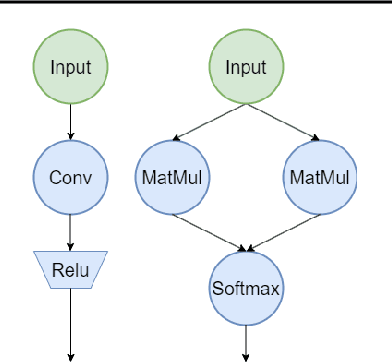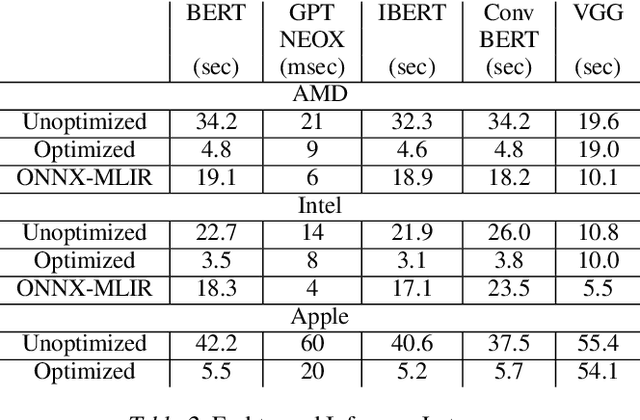Jinjie Liu
FluidML: Fast and Memory Efficient Inference Optimization
Nov 14, 2024



Abstract:Machine learning models deployed on edge devices have enabled numerous exciting new applications, such as humanoid robots, AR glasses, and autonomous vehicles. However, the computing resources available on these edge devices are not catching up with the ever-growing number of parameters in these models. As the models become bigger and more complicated, the novel yet sophisticated structure challenges the inference runtime optimization. We present FluidML, a generic runtime memory management and optimization framework that can flexibly transform the model execution blueprint to achieve faster and more memory-efficient inference. Evaluations across different platforms show that FluidML can consistently reduce the end-to-end inference latency by up to 25.38% for popular language models and reduce peak memory usage by up to 41.47%, compared to state-of-the-art approaches. FluidML is of ~30K line of codes, built for general-purpose usage, and will be released as an open-source inference runtime optimization framework to the community.
AutoPCF: Efficient Product Carbon Footprint Accounting with Large Language Models
Aug 11, 2023Abstract:The product carbon footprint (PCF) is crucial for decarbonizing the supply chain, as it measures the direct and indirect greenhouse gas emissions caused by all activities during the product's life cycle. However, PCF accounting often requires expert knowledge and significant time to construct life cycle models. In this study, we test and compare the emergent ability of five large language models (LLMs) in modeling the 'cradle-to-gate' life cycles of products and generating the inventory data of inputs and outputs, revealing their limitations as a generalized PCF knowledge database. By utilizing LLMs, we propose an automatic AI-driven PCF accounting framework, called AutoPCF, which also applies deep learning algorithms to automatically match calculation parameters, and ultimately calculate the PCF. The results of estimating the carbon footprint for three case products using the AutoPCF framework demonstrate its potential in achieving automatic modeling and estimation of PCF with a large reduction in modeling time from days to minutes.
 Add to Chrome
Add to Chrome Add to Firefox
Add to Firefox Add to Edge
Add to Edge